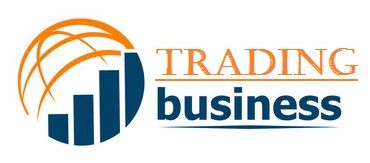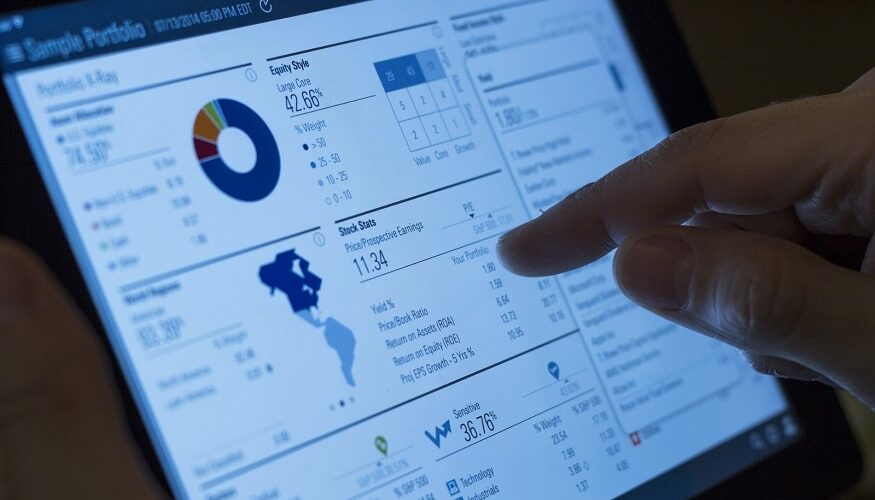Improving Financial Visibility: A Guide to Customised Reporting and Dashboards
Making smarter judgements and enhancing corporate performance are both made possible by financial dashboards. You can improve the overall financial reporting process by integrating these technologies into your present accounting system. Budgeting and forecasting sometimes include time-consuming procedures, repetitive data collection, and many data platforms. Businesses have been integrating cutting-edge dashboard software to help them overcome this difficulty and reach various financial objectives.
Accounting dashboard selection is entirely dependent on the supported interfaces and data transformation capabilities. Your accounting dashboard needs to work in tandem with your financial systems without any hiccups and enable you to run unique analysis as your company grows.
You can understand the performance of your company with just one tool: a financial dashboard. Looking at the income and expense reports can provide you a general indication of how the company is faring, but they do so visually for ease of reference.
The nicest thing about having a financial dashboard is that all of this data is accessible in one location, so switching between different apps or websites to find particular data points is not necessary.
Why does my company require an accounting dashboard?
In the field of accounting, mistakes are not accepted. One small missing digit on one account might have catastrophic results that reverberate across the entire company. Advanced technology is needed to compile all of that important data into a single, well-organized location that is simple to interpret. In any other case, you will incur very significant payroll expenses for a sizable accounting department.
Spreadsheets may have served small and even medium firms in the past, but modern accounting calls for a much more flexible solution. Dashboards for accounting assist with the following:
Collecting inconsistent data for reporting
Dashboards for accounting can be useful if you’re a manager, CEO, or CFO and want to view all of your financial data in one location along with critical KPIs for each quarter. Dashboards let you access real-time data without logging into various systems if your firm operates internationally and has multiple locations.
You may be accustomed to the need for monthly or quarterly reports as a business owner or director. The issue is that these reports frequently snowball into additional reporting needs, which can easily turn into a burden that is too much to handle. If your business is like the majority of companies, you don’t have the time to manually compile all of this information from numerous sources into a report. Solutions like dashboards are therefore required in this situation. They enable you to gather all of this data in one location so you can concentrate on what’s most important—expanding your business.
Reducing the number of unnecessary or lengthy reports
Long reports may contain hazards and inaccuracies. For instance, a report’s complex structure or content may make it difficult to comprehend.
Reports may also be challenging to understand due to the volume of data they contain, making it hard for those outside of your company to make sense of the data presented.
The time it takes to adopt reports after they are developed and implemented might also increase costs if you need assistance from a third party, such as an external accountant.
Finally, some reports require ongoing upkeep in order to keep them current with changes in accounting standards or legislation that may have an impact on how they should be used going future. This type of maintenance frequently costs money as well as other resources like time.
Accounting dashboard advantages
By obtaining those highly valuable financial insights required for decision-making, the overarching objective is to make running your business simpler. When your data systems lack an integrated solution or are so dispersed that gathering and assembling the data seems nearly impossible, it can be a significant challenge. These problems are resolved by a good accounting dashboard, which offers the following advantages:
Financial data, trends, and insights visualised
The big picture is simple to see with dashboards. They can forecast future trends and assist you in understanding the existing state of your company. With a dashboard, you’ll be able to identify trends in your accounting data that were previously obscured from view, which is crucial for making wise business decisions.
With the use of dashboards, you may evaluate the interactions between various aspects and determine how to effectively move forward with corporate operations. Particularly for individuals in leadership roles, you need to be able to analyse sales in relation to marketing expenditures, costs, and current tax responsibilities from a macro viewpoint.
Find latent data points
Making better business decisions is among the biggest advantages of using dashboards for accounting. Real-time access to and analysis of integrated data from several sources enables you to make wise decisions about your company’s operations and boost productivity and profitability.
Due to a lack of time or knowledge in using data efficiently, business owners frequently ignore or underutilise information. However, by including accounting dashboards, firms may access powerful analytics that they otherwise wouldn’t have been able to develop on their own, giving them an advantage over larger companies that have specialised teams in charge of managing this type of IT infrastructure.
More financial flexibility
Dashboards are a terrific method to obtain the data and metrics you require while also adapting and customising your organisation. This is partly because dashboards can be altered to fit your workflow and working preferences and may even be expanded to include data from other sources. The ability to add new measures or KPIs to a good dashboard makes it even more practical for adjusting to your changing business needs.
Automating historical accounting practises and reports
Automation is the use of software to manage basic and complex repetitive operations. It can lessen manual errors and increase the effectiveness of procedures. In place of manually entering data into an Excel spreadsheet each week (which could lead to human mistake), automation could be used, for instance, to calculate the number of hours worked by each employee over the course of a certain time period.
How to move to a dashboard for accounting
There are a few things to consider if you’re considering switching to an accounting dashboard.
First, check that using and navigating the dashboard is simple. Whether it’s an invoice or an expense report, whatever you’re looking for ought to be simple to discover.
Additionally, you want anything that works with your accounting programme. There is no purpose in adding the dashboard tool as an additional layer of complexity to your current procedure if your accounting software doesn’t interact with it.
Last but not least, ensure sure the analytics support crew is accessible and supportive when issues emerge. Although there are some fundamental accounting principles that apply to all businesses, each one will take a different approach to making financial decisions. This calls for software or digital solutions that may be tailored to an organisation’s demands and objectives.
Make sure your accounting dashboard utilises services for automatic updating or syncing. Various sources are frequently used to gather data for accounting purposes. So that the reports you produce always reflect the most recent interactions and insights, you need that data to be updated, vetted, and supplied in real-time.
Other things to think about when you transition:
- Consider your current data management systems’ specific needs.
- Before selecting an accounting dashboard, take your team’s time resources into mind.
- Make every effort to automate operations in order to reduce reporting times.
Before reporting to top management or stakeholders, integrate the dashboard into your financial team’s operations so that they can iron out any issues.
To summarise
Accounting dashboards assist in giving managers the resources they need to make better business decisions. Strategic planning and the management of a successful organisation both depend on data-driven financial research and reporting. When these techniques are used, forecasting skills improve, enabling businesses to produce more precise budgets and allocate resources more efficiently.
An accurate view of your company’s performance over time is provided through integrated financial management. Accounting dashboards keep you up to date on the trends so you may identify possible problems early and make wise decisions for the expansion of the organisation. Because of the simple and concise accounting and reporting, this practically ensures rapid improvement in KPIs and other indicators.
Here at Itass Solutions, we specialise in Sage’s Intacct software that can be customised to suit your business with bespoke dashboards for easy reporting of key metrics.
If you would like to see how Itas Solutions can help you and your organisation reap the benefits of technology in your accounting and the latest cloud solutions for your business accounting needs with powerful cloud accounting software such as Sage’s Intacct, we will only be too happy to show you the benefits and how we can help.
Who we are
Itas Solutions began in 1995 with just one client and today serves over 200 businesses around the UK and we are always on call to help our clients.
Itas is a company trusted by our clients for more than 20 years, and we have grown through customer and IT professional recommendations who appreciate the knowledgeable yet individualised service we provide.
You can reach out to us at info@itassolutions.co.uk, give us a call at +44 (0) 1824 780 000, or send an email to learn more about how Itas can assist your company with finance automation, Sage implementation, and improved purchasing control.
Enhancing financial transparency relies on personalized reporting and dynamic dashboards. Data scraping outsourcing expedites this process by sourcing pertinent financial data, facilitating tailored report generation and dashboard design. This collaborative approach ensures precise insights, empowering businesses to make informed decisions, strategize effectively, and evaluate performance with accuracy.

